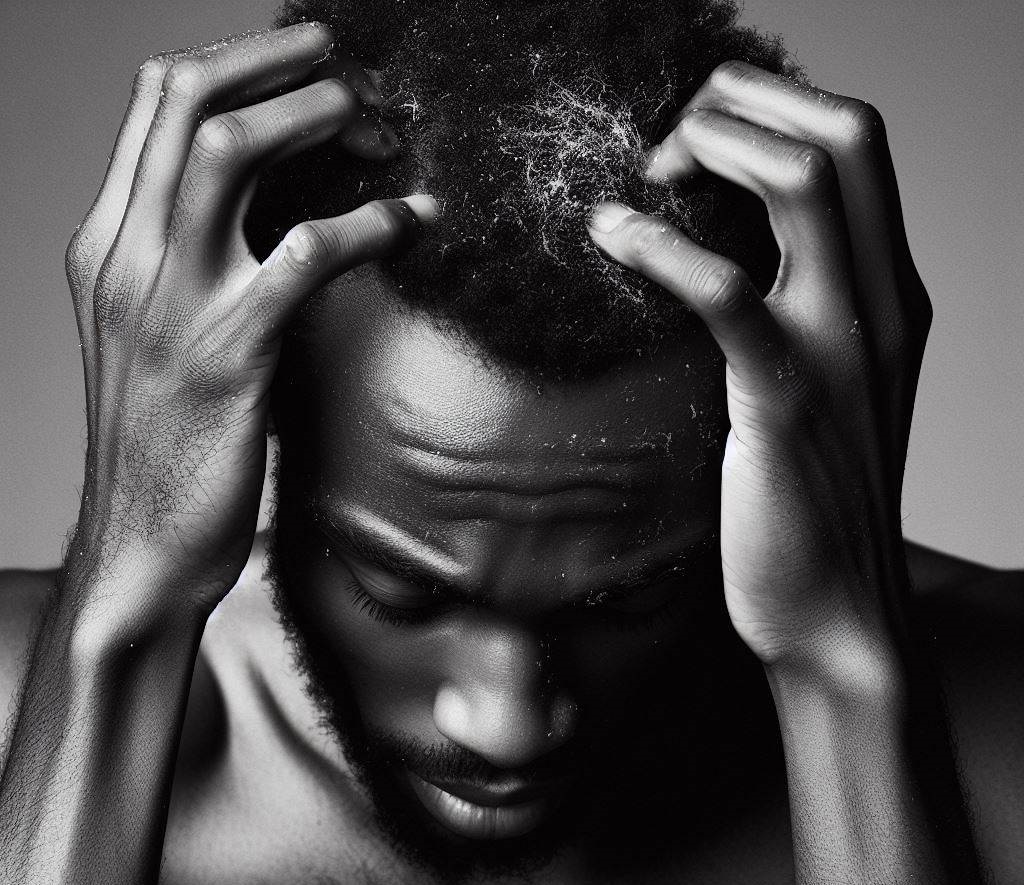Dandruff is a common scalp condition characterized by the flaking of dead skin cells, often accompanied by itching. While dandruff itself may not directly cause hair loss, the relationship between dandruff and hair loss is a subject of interest and concern for many. In this article, we will explore the potential connections, contributing factors, and effective management strategies.
Understanding Dandruff
Dandruff is primarily caused by the overgrowth of a yeast-like fungus called Malassezia. This fungus is naturally present on the scalp, but an overproduction can lead to irritation, inflammation, and increased shedding of dead skin cells. This shedding often manifests as visible white flakes, which is a common symptom of dandruff.
The Relationship Between Dandruff and Hair Loss
The direct link between dandruff and hair loss is not well-established. Dandruff itself is not likely to cause hair follicles to stop producing hair. However, persistent and severe dandruff can contribute to hair loss indirectly through several mechanisms:
-
Inflammation and Irritation: Intense itching and scratching of the scalp due to dandruff can lead to inflammation. Prolonged inflammation may weaken hair follicles and contribute to hair loss over time.
-
Secondary Infections: Continuous scratching may break the skin, making it susceptible to bacterial or fungal infections. These infections can impact hair follicles and result in hair loss.
-
Excessive Shedding: While dandruff primarily affects the outer layer of the skin, it may contribute to an increased turnover of skin cells. Excessive shedding of skin cells may indirectly affect the hair growth cycle.
Factors Contributing to Dandruff and Hair Loss
Several factors may exacerbate both dandruff and hair loss:
-
Poor Scalp Hygiene: Inadequate cleansing of the scalp can lead to the accumulation of dead skin cells and oil, providing an environment conducive to Malassezia overgrowth.
-
Stress: Stress can worsen dandruff and may contribute to hair loss. Chronic stress may disrupt the normal hair growth cycle.
-
Genetics: Some individuals may have a genetic predisposition to dandruff and certain hair loss conditions, making them more susceptible.
-
Hormonal Changes: Hormonal fluctuations, such as those occurring during puberty, pregnancy, or menopause, can influence the severity of dandruff and may impact hair growth.
Managing Dandruff and Preventing Hair Loss
Effective management of dandruff involves addressing the root causes and adopting healthy scalp care habits:
-
Use Anti-Dandruff Shampoos: Medicated shampoos containing active ingredients like ketoconazole, zinc pyrithione, or selenium sulfide can help control Malassezia and reduce dandruff.
-
Maintain Good Scalp Hygiene: Regularly washing the hair with a mild shampoo can prevent the buildup of oil and dead skin cells on the scalp.
-
Manage Stress: Incorporate stress-reducing activities such as exercise, meditation, or deep breathing to mitigate the impact of stress on dandruff and hair loss.
-
Balanced Diet: Ensure a well-balanced diet rich in vitamins, minerals, and nutrients essential for hair health.
-
Consult a Dermatologist: If dandruff persists or is accompanied by significant hair loss, seeking professional advice from a dermatologist is crucial for accurate diagnosis and tailored treatment.
Conclusion
While dandruff itself may not directly cause hair loss, the associated inflammation, itching, and secondary factors can contribute to hair thinning. Understanding the connection between dandruff and hair loss is crucial for adopting effective preventive measures and seeking timely intervention when necessary. Maintaining a healthy scalp through proper hygiene and targeted treatments can help manage dandruff and promote optimal hair health.






